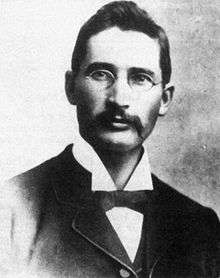South African general election, 1920
| | |||||||||||||||||||||||||||||||||||||||||||||||||||||||||||||||||||||||||||
| |||||||||||||||||||||||||||||||||||||||||||||||||||||||||||||||||||||||||||
| |||||||||||||||||||||||||||||||||||||||||||||||||||||||||||||||||||||||||||
|
| |||||||||||||||||||||||||||||||||||||||||||||||||||||||||||||||||||||||||||
| House of Assembly after the election | |||||||||||||||||||||||||||||||||||||||||||||||||||||||||||||||||||||||||||
| |||||||||||||||||||||||||||||||||||||||||||||||||||||||||||||||||||||||||||
 |
| This article is part of a series on the politics and government of South Africa |
| Government |
| Foreign relations |
|
Related topics |
|
Politics portal |
The 1920 South African general election was held for the 134 seats in the House of Assembly of the Union of South Africa, on 20 March 1920. This was for the third Union Parliament.
The National Party (NP) won the largest number of seats, but not a majority. The South African Party (SAP) minority government continued in office, with Unionist Party support in Parliament. This was the third successive term of SAP government, but only the second period with General Jan Smuts as Prime Minister. The first SAP premier (General Louis Botha) had died in office in 1919, during the previous Parliament.
The National Party became the official opposition, for the first time.
Delimitation of electoral divisions
The South Africa Act 1909 had provided for a delimitation commission to define the boundaries for each electoral division. The representation by province, under the third delimitation report of 1919, is set out in the table below. The figures in brackets are the number of electoral divisions in the previous (1913) delimitation. If there is no figure in brackets then the number was unchanged.[1]
| Provinces | Cape | Natal | Orange Free State | Transvaal | Total |
|---|---|---|---|---|---|
| Divisions | 51 | 17 | 17 | 49 (45) | 134 (130) |
Results
The vote totals in the table below may not give a complete picture of the balance of political opinion, because of unopposed elections (where no votes were cast) and because contested seats may not have been fought by a candidate from all major parties.
The total registered electorate was 421,790. The votes cast were 282,361 (including 4,876 spoilt ballots).[2]
| Party | Seats[3] | Seats % | Votes[4] | Votes % | Leader | |
| National | 44 | 32.84 | 101,227 | 36.48 | General J. B. M. Hertzog | |
| South African | 41 | 30.60 | 90,512 | 32.62 | General Jan Smuts | |
| Unionist | 25 | 18.66 | 38,946 | 14.03 | Sir Thomas Smartt | |
| Labour | 21 | 15.67 | 40,639 | 14.64 | Colonel F. H. P. Creswell | |
| Independent | 3 | 2.24 | 5,986 | 2.16 | - | |
| Socialist League | - | - | 202 | 0.07 | Bill Andrews | |
| Total | 134 | |||||
References
- South Africa 1982: Official Yearbook of the Republic of South Africa, published by Chris van Rensburg Publications
- ↑ South Africa 1982, page 129
- ↑ South Africa 1982, page 176
- ↑ South Africa 1982, page 174 (seats by party)
- ↑ South Africa 1982, page 176 (votes by party)
| ||||||||||||||||||




